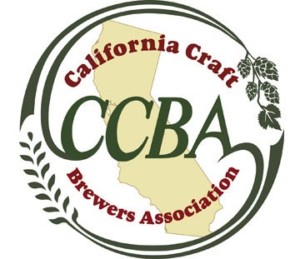 The California Craft Brewer’s Association Conference (CCBA) is a chance for brewers and industry professionals from all over the state to attend workshops and seminars focused on the craft beer industry. This year’s conference was located at the Weston Hotel in beautiful downtown Long Beach, and I arrived at the show hoping for a better look into the industry and those that make it thrive.
The California Craft Brewer’s Association Conference (CCBA) is a chance for brewers and industry professionals from all over the state to attend workshops and seminars focused on the craft beer industry. This year’s conference was located at the Weston Hotel in beautiful downtown Long Beach, and I arrived at the show hoping for a better look into the industry and those that make it thrive.
Upon exiting the escalator to the third floor, I was surrounded by craft breweries from the likes of El Segundo Brewing, Three Weavers and Long Beach’s very own Beachwood BBQ Brewery, who hosted the after-event along with some other breweries from across the state. The main level of the conference sported industry suppliers, including Star San sanitation and cleaning products, Amoretti all natural flavor extracts and Beall Insurance, who provide custom insurance packages specifically made for craft breweries.
As my first foray into this conference, I was most excited for the industry panels, which unfortunately made you choose between the two ballrooms. Each one hosted talks on such subjects as industry analysis and projections, marketing strategies, legal compliance, quality sourcing and debt and equity financing; everything one would need to get a craft beer from garage to grocer in a two day event. I’ve summarized my experiences and takeaways from the panels I attended below:
Legislative Analysis
Craft breweries are subject to a long list of laws which affect advertising and other promotion, sales and a host of regulations from the ABC (Alcohol Beverage Control); the CCBA has a team of lobbyists whose main priority is to propose and support legislation benefiting the craft beer industry.
The $15-minimum wage was a hot topic of discussion as craft breweries are specifically vulnerable to the increase. Unfortunately, it seemed no discussion was had about it effects since it was seemingly rushed through legislature.
There was some good news, though: thanks to AB 774, craft breweries can utilize farmer’s markets to samples their wares (up to 8oz.). Additionally, there have been expansions to different types of licenses and the privileges that come with them (all advocacy advances can be found here).
Sourcing of Quality Products
I was able to sit in on a great talk about the sourcing of quality malts and hops. Malts are barley kernels that have been soaked in water in order to start the germination process and convert some of the starches to easily accessible forms of carbohydrates. They are then roasted to give those starches additional flavoring through the roasting or kilning process. Quality kernels should burst when chewed and lack any hard pieces of kernel left over. Hops, which provide the bitterness and certain fruity flavors of beer, are generally converted into pellet form for ease of shipping more often than packaged as loose leaf. Hop pellets should have vegetative qualities with leafy flair around the pellet and able to be easily picked apart. Additionally, one should watch for burning or glossiness of the pellet which can be formed during the pelletization process. Lastly, one should always rub the pellets to release the oils inside; this really gives a sense of the aroma and flavor of the hop.
 Debt and Equity Financing
Debt and Equity Financing
This talk contained great advice for many small businesses, not just craft breweries. Equity financing can be done for many early businesses and can be obtained from anyone, including friends, family and even angel investors. However, one must be wary of giving away too much control over the business since equity is easier given than taken back.
On the debt side of financing, there are specific SBA (Small Business Administration) loans which are partially backed by the U.S. Government and allow lenders to give riskier loans to small businesses. There are two types of these: 7(a) (which are for general financing) and 504 (which are typically for purchases of real estate or other very large fixed assets). The only downside though is that SBA loans cap out at $5M. For loans made by lenders outside of SBA, there are many to choose from and craft breweries should shop around to be sure they are getting favorable terms to their loans. For all types of debt financing, businesses should be sure to have clean financials and a good working business plan. Additionally, if a brewery has been in business for some time, 12 months of financial history neatly tailored (with a review or complication from an accounting firm) can really help in the application process.
Overall, the conference was a great experience for those interested in the craft beer industry or professionals looking to service this industry. It wasn’t complete, though, without a couple of beers to end the day. All in all, it was a great learning experience, and I look forward to performing more research over the weekend at my local grocery store. For more information on upcoming conferences, visit http://www.californiacraftbeer.com/

